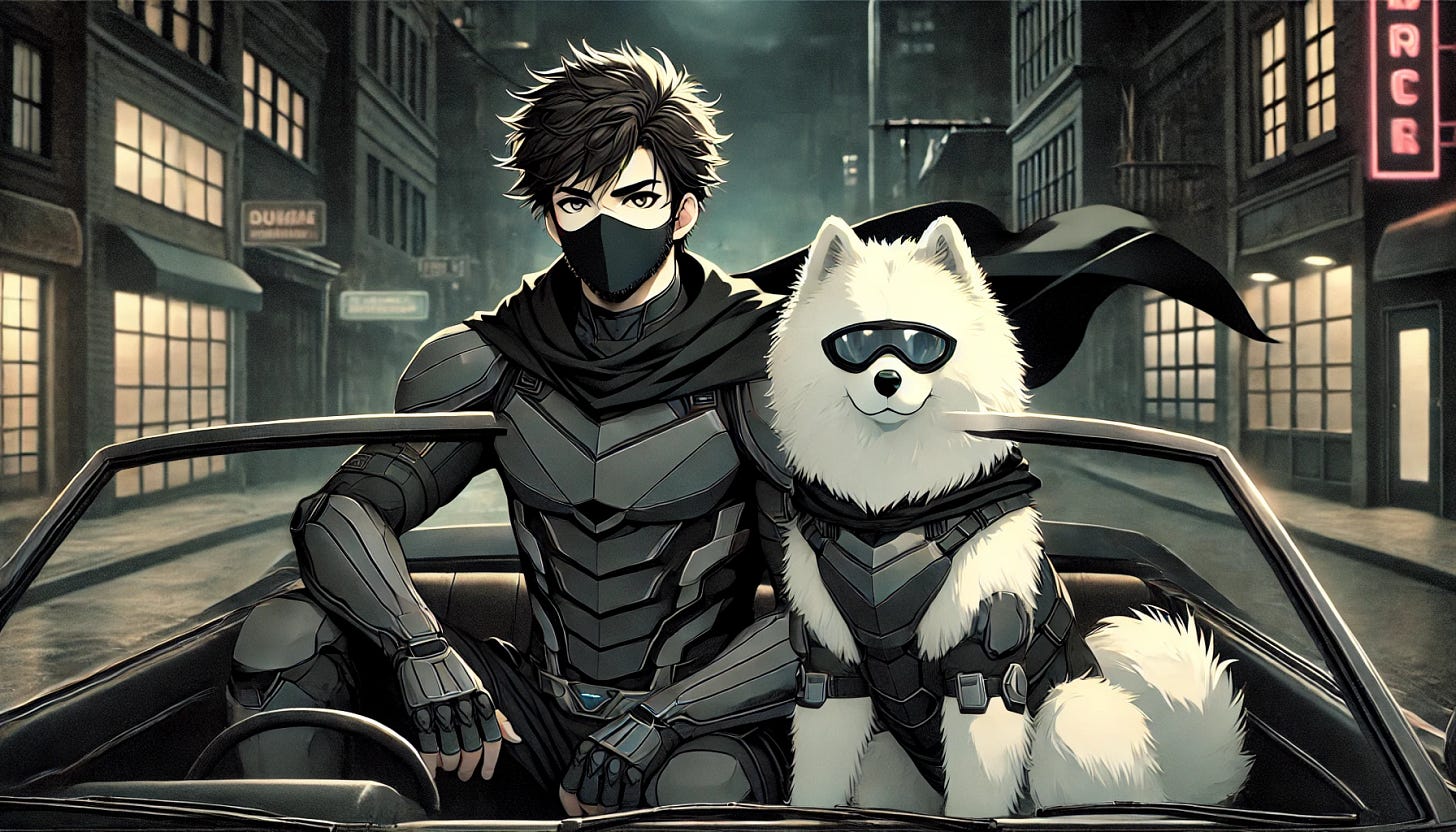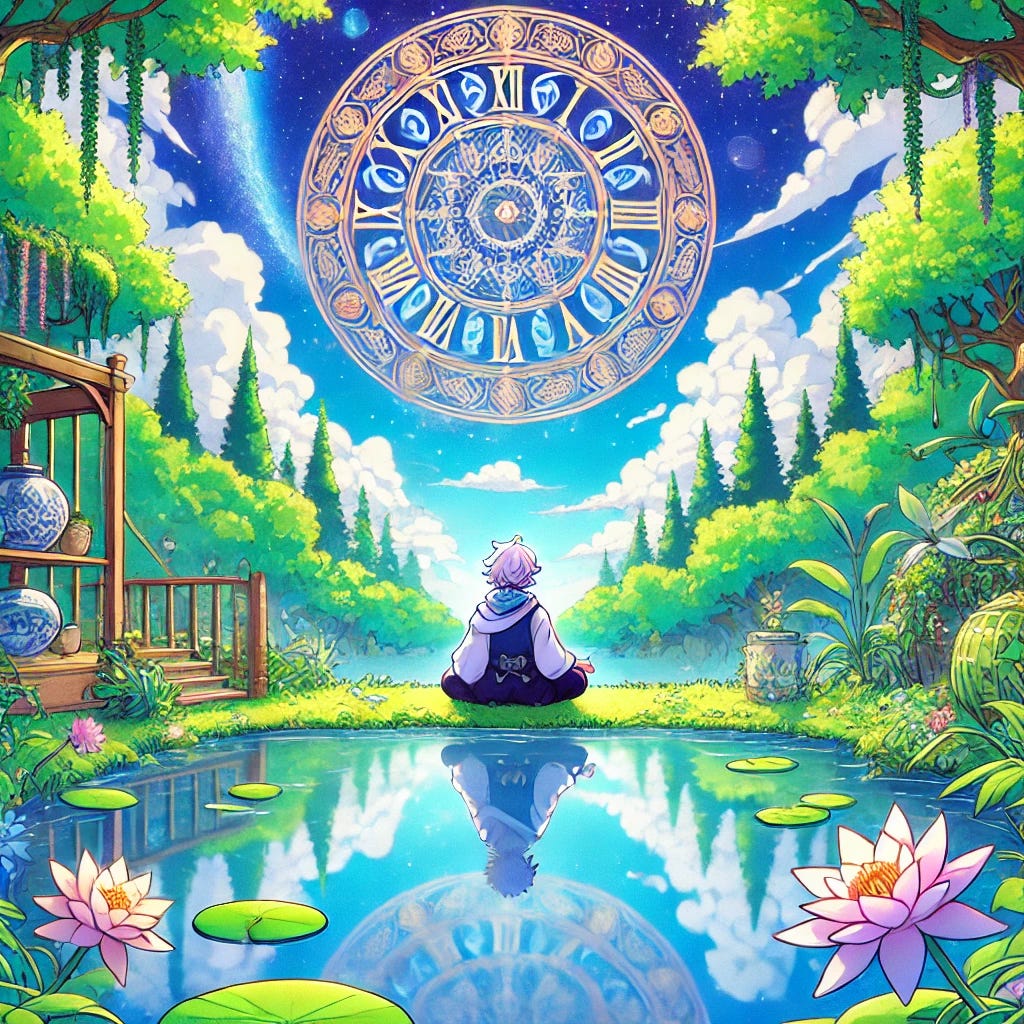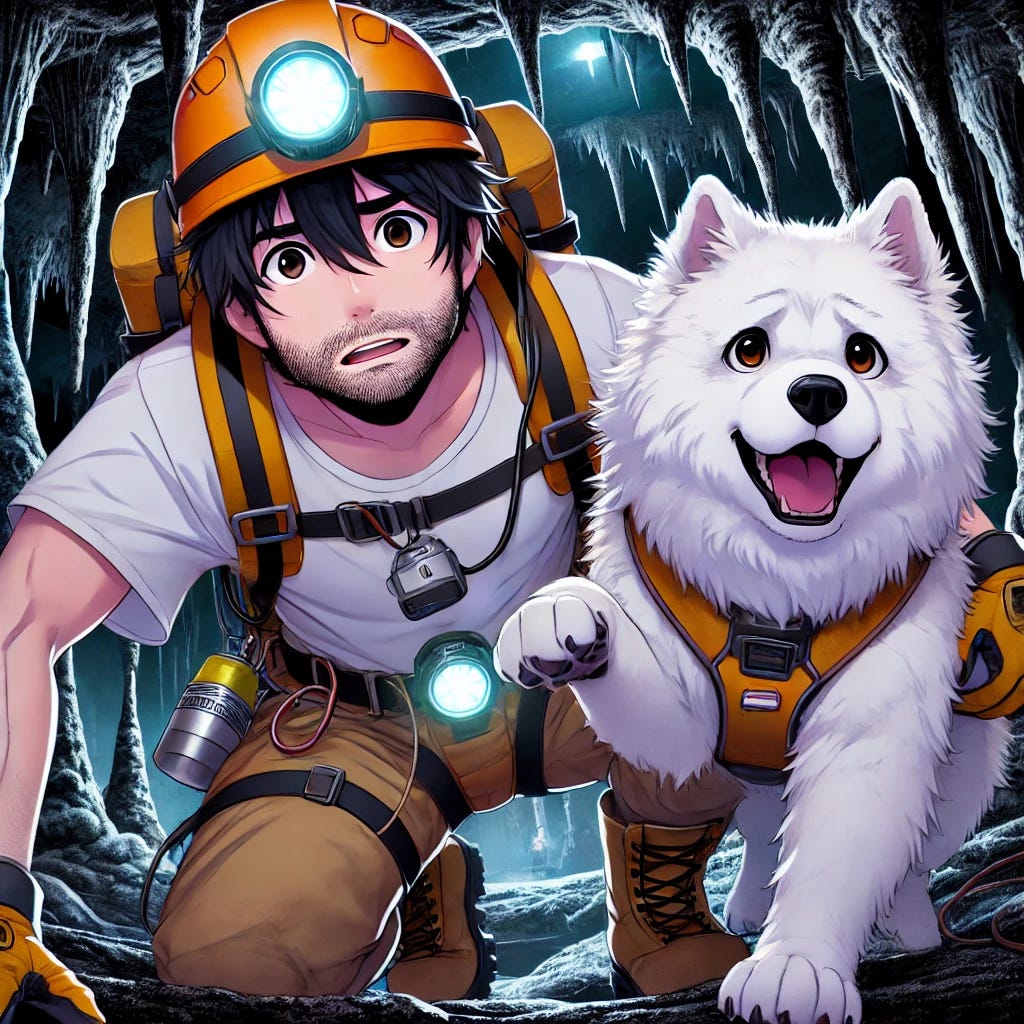How the Narcissist was Humbled
Why learning to master disappointment is crucial to thriving.
“Hey, I got into an accident and the car has some damage.”
“Why are you such a piece of shit?”
I’d heard the first question after someone is in a car accident should be ‘are you okay?’. I was around 22 at the time this happened. I was obviously both furious and hurt by the comments and just frustrated with the overall situation. My best friend at the time, Ross, was with me and I remember him explicitly saying ‘hey, I’m going to leave. I don’t like being around him when he’s like that’. Who could blame him?
There were two responses I had at the time:
I’m an adult now. Why does shit like that still hurt so much?
What am I even doing? Expecting him to change or be anyone that he isn’t is just making me miserable.
I pushed the adult/feelings part of the equation to the side, as I so masterfully did at this point in my life, and really focused in on how my expectations were setting me up to live a life I’d never enjoy. I had very high standards for myself which, sure, limited me in their own ways but I couldn’t go on projecting those standards onto anybody else. I was resenting people because they weren’t who I needed them to be at any particular moment. They weren’t who I wanted them to be.
This led to a lot of ‘if only they were, then I would…’ thinking. Just diabolically self-centered fantasizing that was doing nothing but pushing me further and further away from accepting my reality as it actually was.
Just last week, I found out that I didn’t get the job I had been interviewing for for over two months. I’m both a dreamer and a doer (anyone who says the two are mutually exclusive is a braindead moron). This means that when I go for what I want, my brain has the tendency of attaching all these fantasies and opportunities that would occur as a result of me getting the specific thing I wanted.
With that job in particular, I attached the hopes of:
Moving to either a new city or returning to New York. Either way, the company would pay for all relocation expenses.
I’d be independent and could start dating again. Having a family of my own is a big goal of mine, and this would only bring me closer to that.
I’d feel like less of a disappointment to myself. No one was expressing disappointment in me, but I had started to feel hopeless.
I certainly don’t think it’s abnormal to project all of this onto certain opportunities, but I do think tempering our expectations is perhaps the best strategy in the interest of self-preservation. Thanks to teaching myself how to handle disappointment, these feelings came and went all within around a five-day period. That’s one of the main things I’m grateful for, honestly, is that my past-self hooked me up with a toolbelt I could use to get myself through what I needed to face. My parents certainly didn’t.
At my age of 34, my philosophy around my mental health struggles that came from my childhood is essentially the following: it’s not my fault, but it is my responsibility. I never, ever, write about my past in order to blame anyone or ask for pity. We’re way beyond that phase. It’s now my responsibility to take care of myself and my mental health. I did wish for a long time, though, that they had taught me how to handle disappointment.
As a kid, I would just fantasize about being a superhero a lot. Not just because I thought it was awesome, because I did, but also because with superpowers, I wouldn’t disappoint anyone or feel disappointed because I could do what I wanted. After growing out of that phase, I got to a point where instead, I would convince myself that anything I was hoping for would not actually happen. If I set myself up to be falsely nonchalant about the outcome, I wouldn’t care when the disappointment actually struck, right? NOPE, still hurt the same amount.
At the end of my college tenure and the beginning of my foray into the corporate world, I stopped having to worry about disappointment. I felt like I was genuinely blessed by the gods I didn’t believe in because everything was just handed to me. Got everything I interviewed for on the first shot. Awesome friends just seemed to appear effortlessly. It felt like I could have any beautiful women I wanted. It was a bizarre time where everything just turned up Nur.
When living in a reality like that for years, you feel invincible. When living in a reality like that for years, it’s also a guarantee that eventually, you will crash and burn. It’s a wake-up call that makes you never want to fall asleep again.
At this point, the only real skill I had to deal with the overwhelming tides of disappointment was to just assume I wouldn’t actually succeed at anything. Then, I did start succeeding at everything, so that belief went away. Now, without that belief, the only defense I had for disappointment was my good friend Jack. No, no, not my actual good friend Jack. The other one. My good friend Jack - jack fucking shit.
It just became this sense of total abandonment. I stopped seeing myself as someone that matters. I stopped seeing anyone else as people who were also suffering. It’s an incredibly lonely, self-centered, tunnel visioned state of existence. I’m this wounded being, no one else understands how wounded I am, and I drink, chase women, smoke, whatever, to numb my existential pain. It’s just what happens when hope dissipates. Why should I care if smoking and drinking excessively is damaging my body?
Why should I care that my mental health and appearance have gone to absolute trash? It was over, and there was no redemption on the horizon. Very dramatic to think when you’re only 26 years old, but that’s what happens. I’d even romanticize that particular state of being. It was the idea of fulfilling the ‘suffering artist’ archetype I’d internalized from the lives of the likes of Vincent Van Gogh, Ernest Hemingway and Alan Watts.
The reality of this state of being, in vast contrast to how I imagined my favorite artists and thinkers (at the time) living their lives, is that people become tired of you very quickly. In that state of being, it’s extremely easy to see this as selfish and ‘fair-weathered’ behavior. It’s much more challenging to see that the way you’ve been living your life has been hurting the people who care about you. It’s much more challenging to see that it’s YOU who is the selfish asshole and NOT the people who still haven’t left you behind, even when they had every right and reason to do so.
I was extremely lucky to have had a point where I snapped out of it and thought ‘what the hell am I doing?’. I remember my cousin was going through a brutal breakup at the same time that I was going through my whirlwind of self-pity. He sat me down once, to vent about his own stuff, and I’ll never forget him saying ‘Nur, our lives would have been much easier if we had been taught how to handle disappointment’. There was something about seeing it through that specific lens that helped me considerably. It’s the beauty of being able to name feelings and emotions. Once it’s named, it becomes more real, and gives us something concrete to look into.
The thing that fascinated me the most about disappointment was how multifaceted and far reaching it was. To mitigate the risk of repeating myself from previous newsletters, let’s jump right into what I discovered.
The ‘Why’:
1. Expectations
For me, my expectations seemed to bite me in the ass the most when they were based around:
People
Events
Goals
With people, it was always the same story. I’d project way too many expectations onto them. I’d always want them to be who I wanted them to be, who I needed them to be. Funnily enough, I always thought that I was accepting them for who they were. Or at least that’s what I’d tell people. And, with humans being humans, I was setting myself up for disappointment each and every time.
With events, it’s what I described earlier. I would fantasize excessively on the possible outcomes and be crushed if I didn’t get exactly what my imagination was so desperately hoping for.
With goals, and this one is my favorite because of how subtle it might be, I noticed that I would work towards a goal, stop, lose progress, then wonder what happened. Then, I’d work towards it, stop, lose progress, wonder what happened, ad infinitum.
I began to realize that while people were so quick to jump to explaining this away with either a lack of discipline, willpower, and not ‘wanting it bad enough’, the reality was quite different. Although those were certainly aspects of it, I began to realize that what I was doing was self-sabotaging. Why? Well, what happens if I reach my goal and the result isn’t what I wanted it to be? Let’s take myself as an example. I had been very fit my whole adult life. As I’ve mentioned before, over exercising was my coping jam. After alcohol and food binge city, that wasn’t the case anymore. I’d always get very close to my goal physique again and then; I’d just give up.
I’d built my goal physique up as a cure all for so many things. ‘When I reach my goal physique, I’ll look amazing again, I’ll get the halo effect back, I’ll get so many women again, I’ll this, I’ll that, etc., etc.’. I was setting myself up for disappointment. Like people, I was expecting way too much from it. Like the outcome of events, I was expecting life changing magic.
2. Toxic Positivity
‘Be positive… or else!’. The zeitgeist of the time, within my group of friends, was an outrageous emphasis on being positive and optimistic all the time. Messages that positive people were more desired, happier, and more successful, seemed to bombard me at every corner. Whenever I felt negativity, disappointment in particular, I felt like I had to go full ostrich mode and hide my head in the sand.
We cannot selectively numb emotions. When we numb the painful emotions, we also numb the positive emotions. - Brene Brown
I remember being on vacation in Nantucket one summer and very publicly dropping my sunglasses and having them shatter all over the floor. I loved those sunglasses. They might have been cheap knockoffs, but they were rose-colored aviators and I loved them. Obviously, I was momentarily heart broken and disappointed. Since I had all eyes on me at the moment, instead of expressing any sort of real emotion, I said: ‘whelp, there’s an opportunity to learn how to let go!’ and I just laughed it off. I feel sad for the boy in that memory. While I consider what I said to be a good sentiment and something to aspire to, it wasn’t what I felt in the moment. What a shame to feel the need to lie about my emotions. What a state of being it is to feel trapped in a prison of false positivity.
It reminds me of when I first raised Meelo and Bear as puppies. It was HARD. I’ve said this before, and I’ll say it again: raising Samoyed puppies by myself is perhaps the most challenging thing I’ve ever done in this life. On top of how difficult it is, I never felt like I could express that. I didn’t want the disappointment of feeling like I was a ‘bad’ dog owner or that I just couldn’t do it. Funny thing is, the majority of the dog community I was instilled in seemed to feel the exact same way. How did I know that? Well, NO ONE talked about how fucking hard it was. No one wanted the disappointment of being, feeling like, or being seen as a bad fur parent. So, everyone did the clearly healthier thing: we all suffered in silence.
How does anyone deal with all this when it seems like it’s the normal thing to do? Well, luckily, I discovered quite a few ideas.
The How:
1. Embrace Temperance and Love the Process
Disappointment bites us in the ass when we are laser-focused on outcomes. Notice that the majority of fantasizing that I projected onto goals and events were all outcome based. The outcome is rarely what truly makes us happy, anyways. The process does. Becoming the person we need to be to achieve a goal, for instance, and seeing that steady progress, is way more fulfilling than the one singular moment when we realize we finally hit our goal. Emphasizing the one singular moment that we put so much weight on, instead of the plethora of moments required to get there, seems silly in retrospect.
As far as expectations go, temperance is our best friend. Tempering our expectations and seeing things through a more realistic lens is a lifesaving activity. There’s nothing wrong with being excited for a potential outcome, that isn’t what I’m getting at. It’s when excitement turns to extreme fantasizing and extreme anticipation that it becomes a problem. We’re setting ourselves up for the potential disappointment to hit us significantly harder. It’s self-sabotage. Remember self-sabotage often feels very good in the moment. Rarely does it serve us in the long term, though.
Temperance in the form of patience is the one that took me a while to fully understand in the realm of disappointment. I came to realize that many times when I was disappointed with an outcome, it was because I wanted it now. Not only did I not get the outcome I desired, but now I also had to do all the work all over in order to even try again. It’s why not putting our eggs in one basket is such a brilliant adage. Working towards multiple options has the profound effect of not only tempering outcome disappointment, but also not burdening us with the feeling that we have to start from scratch.
Patience is the calm acceptance that things can happen in a different order than the one you have in mind. - David G. Allen
It is incredibly easier to deal with disappointment when we think ‘oh well, I may have lost X but I still have Y!’. Boys, I can’t emphasize this enough: this is not me giving you permission to have side chicks when in a relationship.
2. Vulnerability, Gratitude and Appreciation
It never fully makes sense to me when certain newsletters seem to wildly out preform the ones I think are my best. I always assume they’ll be by far my best pieces yet, but that never seems to be the case. Honestly, I learned to be grateful to even have a single reader and have learned to appreciate how they receive and digest my writings vs how I do.
Gratitude and appreciation really go a long way in helping us deal with disappointment. Being grateful to even have certain opportunities has been like a healing balm in opposition to me feeling almost entitled to getting something; therefore, feeling outrageously disappointed and a bit wrathful when I didn’t get what I wanted. It was just a bitter existence when I saw things that way and I’m glad to have exchanged it for gratitude.
They both apply to disappointment with people, too. Instead of projecting who I wanted someone to be onto the person, I learned to be grateful to have them in my life and appreciative of who they were. All their quirks and imperfections started to shine and become incredibly endearing rather than fodder for disappointment.
Let’s revisit the example of the dog community and no one wanting to paint themselves as a bad dog parent. Do you know how much of a breath of fresh air it would have been for just one single person to tell me ‘Yeah dude, the puppy phase is hard as hell’. Sometimes we just really need someone to listen and say ‘damn, that sucks’. Sometimes we just need someone to acknowledge that what we’re going through isn’t all kittens, koalas and capybaras. It’s okay to express disappointment, and it’s okay to respond to disappointment empathetically. The guise of toxic positivity being turned on 24/7 is absolutely exhausting, completely unnecessary, and wildly reckless.
Toxic positivity is forced, false positivity. It may sound innocuous on the surface, but when you share something difficult with someone and they insist that you turn it into a positive, what they're really saying is 'My comfort is more important than your reality. - Dr. Susan David
3. Exploring Fear with Mindfulness
What does fear have to do with anything? I’m going to keep this part short and sweet, and totally not only because I’m about to hit the ‘email length limit’ 👀. When you feel disappointment, focus on where in your body it is coming from. Allow yourself to feel the feeling and gently explore what it is that’s arising in you. The reality is that disappointment is almost always activated by fear, and it is immensely beneficial to figure out what that root fear is. I’ll show you this exercise using the example of me not getting the job I wanted (it’s the same one we’ve done before for resentments):
I am disappointed because I have fear: fear that I’ll never get a job, fear that I’ll never be able to be fully independent again, fear that I’ll never have a family of my own, fear I’ll end up alone.
What do you do when you feel immensely disappointed? How do you temper your expectations and show appreciation for the ones in your life that you’re immensely grateful for? Go ahead and share below! Can’t wait to hear from you and until next time, my loves.










Oh, Nur, I am deeply sorry you did not get the job. It just feels so close to me right now since honestly, I had no plan B for if I would not have gotten the job I recently applied for - and like you - put all my daydreaming and projections of a future into it.
I can relate to so many aspects of this post, like fantasizing about being a superhero as a child. And I think you just made me pinpoint that my main strategy to deal with disappointment is to do EVERYTHING that I am not a disappointment to anyone. I noticed this in your phrasing: “it’s not my fault, but it is my responsibility”.
As much as I try living by this philosophy, I also struggle with it at times: The pattern of trying to fix everything myself/being responsible for everything myself can also build up again in being disappointed in ourselves! Since we try so hard, and sometimes, healing and progress take way more time and resources than what we feel we have the capacity for. And we are back to “I will not succeed at anything. 🫠
So thank you so much for this post. I think I really need it right. The “How” sections are so valuable. I think I will save this post and re-read the How a few times in the coming weeks. And I feel I can still go a bit deeper in figuring out the “Expectations” part of my “Why”. 🤍
Another insightful post! And I’m glad to hear that when you read your own words, you occasionally stumble and wonder, wait, what did I write??? I do the same thing!!! I have yet to do a voiceover for any of my posts here on Substack, but it is a regular process for me to read my writing out loud as part of my editing process… Just to make sure it makes sense. Our brains hop over letters and words when we read in our head, so reading it out loud helps me figure out what I’ve missed or where my words don’t flow.
Couple months back, I applied for a job that was a stretch based on my past work experience. But I would’ve loved to have the job. All the things I would enjoy doing and in my hometown. But I didn’t have any experience and I was upfront with that on my cover letter. What I brought was: deep knowledge of our local community, experience that was parallel to job required tasks, and a motivation to give back to my community. I did not even get an interview. And that hurt. Even now, typing this truth is hard. So I obviously need to process it more. When those who knew I had applied for the job asked me about it, I simply said, “well you know, I didn’t have any experience, and they found a perfect candidate who has all the same qualities that I have, but the added quality of experience for the job.” And they did. They found a great person to fill the position. It just wasn’t me.
Fast-forward a couple months, and now my current job has been reduced from five days a week to one day a week. Not sustainable in the long term. But at least I still have employment (silver lining), and can collect under/unemployment (silver lining), and have more time to focus on bringing my first novel to publication (silver lining). But, man, it hurts to think I’m not valuable enough to be needed. They can cherry pick my time. And it still hurts even though I had already been looking for another job.
Looks like I need to go through some of your steps to deal with my disappointment in a healthy way. So thank you for your words!